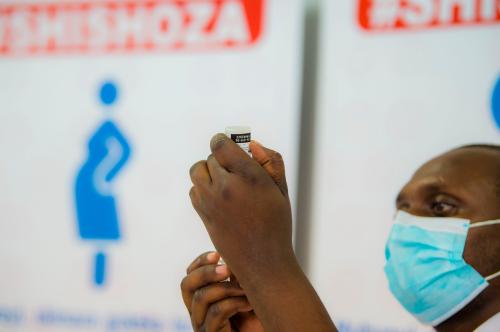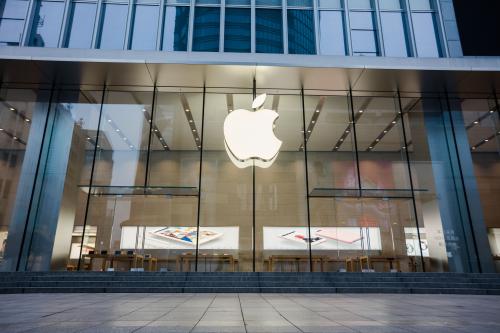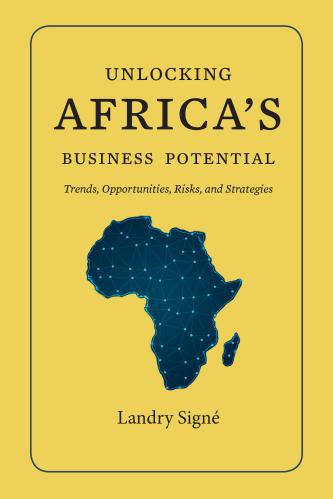Abstract
Past investments in health care have contributed to the overall improvement of health outcomes in recent decades in Africa, but the persistent high incidence and mortality rates of infectious and non-communicable diseases reveals that there is still more to be done. Now, Africa’s health care sector has immense potential to benefit from Fourth Industrial Revolution (4IR) investments and innovations to bridge the gap between health care promise and delivery, including capitalizing on the solutions provided by disruptive technologies such as artificial intelligence (AI) and machine learning, big data analytics, 3D printing, the Internet of Things, automated vehicles and drones, cloud computing, and blockchain technologies. Indeed, investments in health-related 4IR technologies could have great returns in terms of business, and, more importantly, health outcomes, contributing to the protection of a fundamental human right (health) while fostering economic prosperity and sustainable development.
The 4IR offers efficient and effective ways to carry out public health measures to both improve health care outcomes and overcome crises such as COVID-19, Ebola, and other widespread diseases at various levels of cost, scope, and scalability. AI and mobile technology, for example, offer data-collecting tools to aid in contact tracing, symptom checking, outbreak prediction, vulnerability tracking, as well as communication platforms for doctor-patient interaction and public health information campaigns, while blockchain solutions can protect privacy during macro analysis of these crises by anonymizing collected data. Cloud-based platforms make it easier for workers and students to practice social distancing, as do drones and robots that deliver medicine, medical supplies, and meals to health facilities and infected patients. Advanced materials and nanotechnologies are also playing critical roles in rapid diagnostics, therapeutics, surveillance and monitoring, vaccines, and new, more effective forms of personal protective equipment. Quantum computing enables quick calculations, which enhances the functionality of applications that can accelerate drug discovery, optimize hospital and health care system logistics, and speed up vaccine validation. 3D printing allows for the scalable production of crucial medical supplies like testing kits, face masks, safety eyewear, and ventilator components, especially if the digital designs are accessible to the public. Mobile money allows vendors to go cashless, and thermal imaging allows for fast, non-contact fever screening.
A healthy society is essential for stability and economic improvement: Indeed, improved health outcomes lead to increased productivity and better educational performance, and, of course, greater life expectancy, African governments should, therefore, capitalize on the Fourth Industrial Revolution in the health care sector and facilitate the development and adoption of relevant disruptive and scalable innovations needed for tackling challenges such as medical human capital shortages, medical supply and facility shortages, weak infrastructure and logistics, poor patient experience, efficiency of care, and organizational effectiveness. While policy solutions differ across individual countries, fixing health care challenges is a shared goal and is central to Africa’s achievement of the Sustainable Development Goals and the African Union’s Agenda 2063.
This report first discusses the key trends in health in Africa. Second, it explores recurring challenges and policy constraints to effective health care. Third, it provides trends and illustrations of emerging technologies and innovation of the Fourth Industrial Revolution in health care in Africa. Fourth, it presents seven effective strategies and policy options for bridging the gap between the promise and delivery in Africa’s health care with the Fourth Industrial Revolution:
- Commission a national 4IR or Digital Health Strategy task force that will develop (and help successfully implement) vertical and horizontal strategies and mechanisms adapted to local and national contexts, while benefiting from international innovations and experiences, to deliver on health care promise;
- Engage in “public-private-philanthropic partnerships” (4P) to foster risk pooling and increase access to capital for smaller, local health organizations and innovators;
- Capitalize on e-learning strategies to train both clinical and managerial medical personnel and them on and prepare them to properly use more complex technologies;
- Leverage technological platforms and networks to face the shortage of human capital through a “digital brain gain” from the diaspora and friends of Africa;
- Leverage fintech and digital health innovations to improve financial access to care and achieve universal health coverage;
- Engage local communities and “community health care leaders” in order to accelerate 4IR technology adoption, usage, and efficiency;
- Invest in health facility electrification, developing digital infrastructure, and universal access to broadband internet.
The successful implementation of effective 4IR and digital health strategies in Africa will also require initial and/or accelerating conditions for advancing technology more broadly, such as substantial investments to develop digital infrastructure and universal access to broadband internet, and a systematic and synergistic integration of digital technologies across actors and sectors beyond health care. Ultimately, multi-stakeholder collaboration and agile governance should be accelerated to reinforce preparedness and response for both infectious and non-communicable diseases, regional and international collaborations for effective health care delivery in the Fourth Industrial Revolution context.
The Brookings Institution is committed to quality, independence, and impact.
We are supported by a diverse array of funders. In line with our values and policies, each Brookings publication represents the sole views of its author(s).







